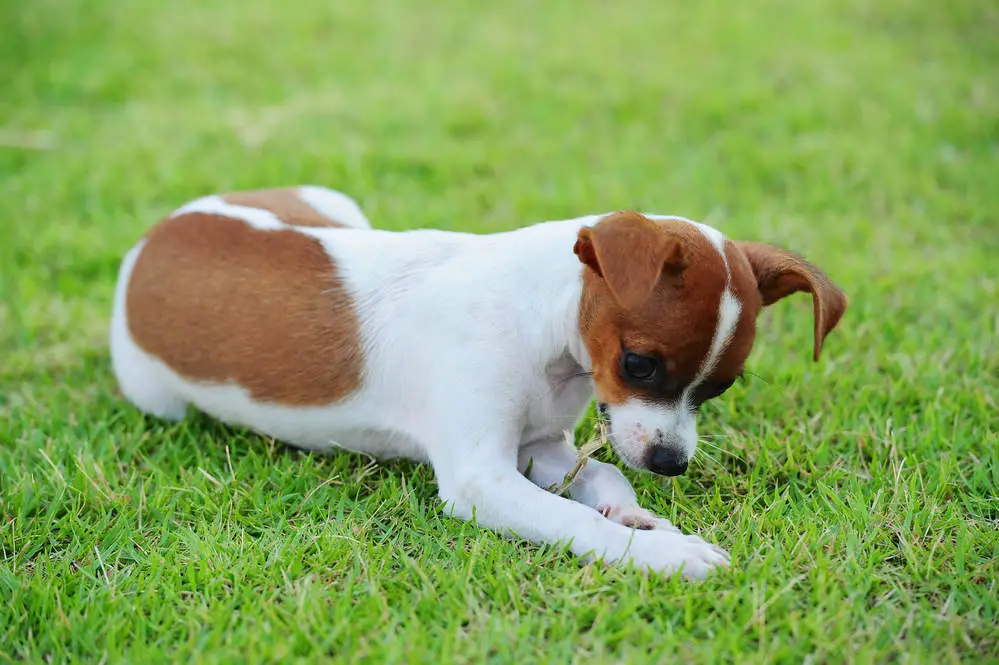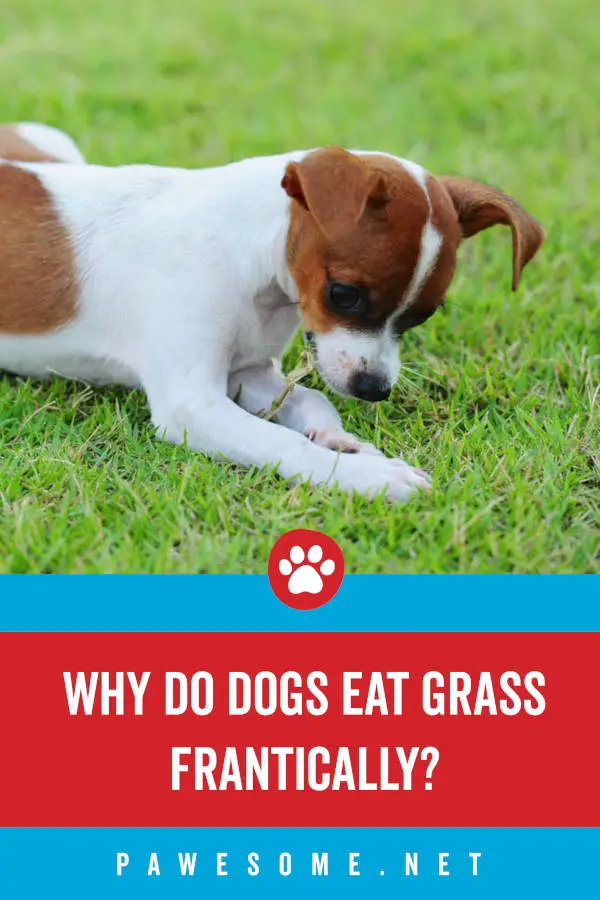 You have a dog, not a cow. So if your dog starts to eat grass, we hope you’re here Googling if it is all right.
You have a dog, not a cow. So if your dog starts to eat grass, we hope you’re here Googling if it is all right.
And you are, we’re glad you found us. You’re probably wondering if your pup is sick or bored or just hungry and found the wrong snack.
Here’s the answer to that question.
Is My Dog Weird and What’s It Called?
Let’s put your mind at ease and assure you that eating grass is actually quite common among some dogs. The condition is called pica.
It is also not weird for dogs to eat grass and puke, although it isn’t something you should take lightly. Though there is a name for this disorder, it is often not a dangerous one, especially in younger dogs.
It is not a severe condition. In fact, there was a small study that found that a majority of the dogs with access to grass ended up eating plants.
Another study found that when dogs eat plants, grass is their most common choice.
Now, there are two opposing schools of thought on this. The way to understand it is to sometimes look at our own behavior.
If you’ve ever made yourself puke or know someone who does to get rid of the feeling of uneasiness (especially to avoid a hangover or while you’re sick) you will relate to one school of thought. According to this logic, dogs often deliberately eat grass and throw up when they are sick to try and feel better.
So eating grass is more like a fever among humans. It is a sign of illness rather than being the problem itself.
But some disagree saying dogs are smarter than that. Those dog owners have said that less than 10% of dogs were found to be sick before they consumed grass.
And less than 25% of dogs actually end up puking after eating grass.
Those on the opposing side have said that their dogs ate grass because it helped them digest their food and solve problems related to worms in the intestines.
It could also be a sign of unfulfilled nutritional needs, like wanting more fiber. For example, one study showed that a particular miniature poodle ate grass for seven years until it was finally put on a diet of fiber.
And just days after the change in diet, the habit was broken. You should also consider the possibility that your dog might just like grass better because of its taste or smell.
After all, we’ve seen children eat sand and brick and we’ve not really questioned that.
When Should I Worry About It?
Of course, it is a cause for concern when your dog is making itself puke. And the best approach to this is to start by monitoring its health and food habits.
Indigestion is a major contender here. When they feel uneasy because of something they already ate, they try to fix it by eating grass and making themselves sick.
Pay attention to how it is eating. One of the ways to identify this is to see if the dog is enjoying eating the grass or just swallowing it frantically.
Their hope is that it gets stuck in their throat and initiates a gag reflex.
If this is a one-time thing, it is a little difficult and might even be premature to reach a conclusion. So, again, wait and monitor its health.
If this has happened more than once, make notes about their physical and mental health conditions and look for a pattern.
This comes in handy when you take them to the vet (and you should) to make sure it is not some kind of food poisoning. It is possible that the grass itself has toxic substances on it.
In that case, look for symptoms like lethargy or shivering and shaking. Make sure there is no fever, weakness or disorientation of any kind.
Diarrhea and seizures are two other big red flags. This happens when they ingest toxic substances either from the grass or anything else they may have eaten before heading towards the backyard.
Another possible explanation, as mentioned before, could be a lack of fiber in their food. Check the labels of your dog’s food and try to make a change.
If you decide to change their diet, make sure you do it in increments. The ideal way is to mix up the new food with the old brand and gradually change the portions until it is 100% the new variety.
The way to figure this out is to check their stool. If it is too dry or unusually hard then you might be onto something here.
Some commercial brands might also inherently lead to constipation. So, again, check the labels.
If you don’t want to switch brands yet, make some changes at home by adding some coconut fiber or cooked pumpkin. That will give you an idea.
But talk to your vet before making any big changes. Sudden changes are not good for their gut health.
The third possible explanation is boredom. This is easier to figure out because they don’t just chew on grass.
The lack of stimulus leads them to do attack anything they can find in your garden. It could also lead to anxiety because they are bored.
Yes, this is literally the case of going nuts out of boredom. So you might want to look at their schedule and more importantly, yours.
Take them for walks and spend time playing with them a little more than usual. If you have an active pup this might be it.
Another theory is that dogs might be eating grass (like their ancestors) because they are trying to get rid of parasites like roundworms. But if this is the reason, your dog could be caught in a bit of a vicious cycle.
Sometimes, grass that is infected with parasites is the culprit. So you might want to take them to the vet and talk about putting them on parasite prevention medication.
When to Fix It?
Even if your dog is perfectly healthy and is eating grass just to amuse itself, you might not want it to destroy your garden, or for that matter, any other patch of green they find while on a walk. So, it definitely is a good idea to distract them with something better to eat and do.
Some folks treat their grass with pesticides so if it becomes a habit, even though the grass in your lawn is fine, it will be a problem when your dog eats grass outside.
Sometimes outside grass also has the fecal residue of other animals. That’s a nasty thing to consume.
What We’re Trying to Say Is…
It might be out of boredom or a serious problem with indigestion or worms. What you need to do is start by monitoring their food and playtime.
Observe if it’s a one-off or a recurring event. Read the labels on their food and check the amount of fiber consumption.
Try a couple of harmless home remedies if they are not making themselves sick with grass consumption. But if they are, keep them off the grass for a couple of days before taking to the vet and make notes that will help you explain the situation.

